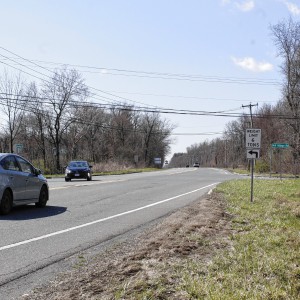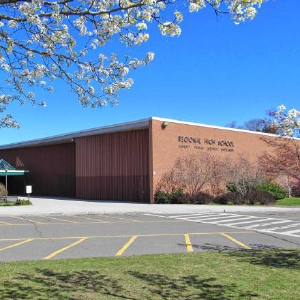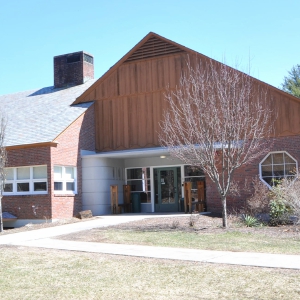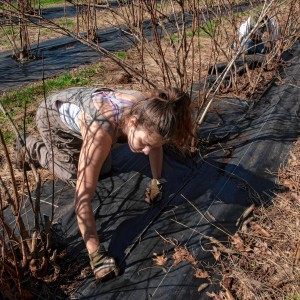Area lawmakers gear up for session, pot legalization
| Published: 12-08-2016 11:32 PM |
BOSTON — Area legislators predict a busy new session beginning in January, with issues including the opioid epidemic, clean energy and educational reform on the priority list.
Topping the list is the state’s new law legalizing marijuana, with the Dec. 15 deadline putting pressure on legislators to make adjustments to the law quickly.
“The deadlines in the legislation are very tight, and there is some concern they might be too tight,” said Senate President Stanley Rosenberg, D-Amherst. “They are under discussion right now with proponents of the ballot question and officials in the state government. If there were to be an adjustment, it would be very modest.”
Rep. Peter Kocot, D-Northampton, said one of the biggest concerns is making sure marijuana does not make it into the wrong hands.
“On a macro level, we want to learn from what has happened out in Colorado and make sure some of the negative aspects of legalization that occurred there don’t occur out here,” Kocot said.
“In particular, I know folks are concerned about the influx of organized crime and gang activity related to the distribution and cultivation of marijuana outside the parameters of (Question 4).”
The ballot measure allows peole over 21 to possess, use and cultivate limited quantities of marijuana. It creates a Cannabis Control Commission to administer the law, implement regulations on the sale of the drug and license retail outlets.
Cities and towns can decide whether to allow marijuana shops to operate. Proceeds will be taxed at 3.75 percent, on top of the state sales tax, with municipalities empowered to add a local tax up to 2 percent.
Article continues after...
Yesterday's Most Read Articles
 South Hadley man fatally shot in attempted robbery
South Hadley man fatally shot in attempted robbery
 Smith College exhibit explores Sylvia Plath’s botanical inspiration
Smith College exhibit explores Sylvia Plath’s botanical inspiration
 Holyoke man finds bear paw in his yard
Holyoke man finds bear paw in his yard
 Guest columnist Bill Dwight: How to make sense of Northampton’s school budget dilemma
Guest columnist Bill Dwight: How to make sense of Northampton’s school budget dilemma
 South Hadley’s Lauren Marjanski signs National Letter of Intent to play soccer at Siena College
South Hadley’s Lauren Marjanski signs National Letter of Intent to play soccer at Siena College
 Deerfield residents petitioning to fix ‘dangerous’ intersection
Deerfield residents petitioning to fix ‘dangerous’ intersection
Other legislators are focused on the opioid drug crisis. Sen. Eric Lesser, D-Longmeadow, wants to push for more strategies specific to western Massachusetts that focus on prevention and treatment, such as opening a drug court in Springfield and cracking down on the overprescription of addictive narcotic pills.
“Unfortunately, there are not enough beds or treatment options here in western Massachusetts,” Lesser said. “(Springfield) does not have a drug court despite being the third largest city in the state. We are going to continue working on that.”
Lesser also will focus on ways western Massachusetts can improve educational opportunities, including a new robotics and engineering program being developed in Belchertown.
“We need more vocational training to close the skills gap,” he said. “Here in western Massachusetts we have a vocational skills industry, but do not have enough skilled workers to fill those positions.”
Kocot also wants to encourage vocational training and take another look at the funding formula used to finance charter schools.
“Clearly, the language of the charter school experiment led to a situation where substantial funds are being siphoned off public schools to the benefit of charter schools,” he said, noting criticism of charter school’s low enrollment of special-needs students.
Legislators will continue to explore news ways to develop clean energy in Massachusetts. Rosenberg is focused on revising state laws encouraging the development of solar power, which has grown in the state.
“We need to revisit solar metering again because we have hit the cap in certain regions,” Rosenberg said. “We don’t want to slow down the growth and installation of solar power in the commonwealth.”
Kocot said he will push to put the state on a path to be 100 percent reliant on clean energy by 2050, noting Northampton’s efforts to replace all streetlights with LED bulbs and a solar energy project on an old landfill.
“There are no insurmountable obstacles to getting to that 100 percent clean energy level,” Kocot said. “Moving to a green energy system creates jobs — about 98,000 is the number I saw.”
Bringing jobs to western Massachusetts is another priority for legislators, many saying they want their districts to share in the development that happens in the eastern part of the state.
Kocot said House Speaker Robert DeLeo has been working with legislators from western Massachusetts and local chambers of commerce to help bring Boston’s biotechnology boom to the western part of the state.
“We as a delegation in western Massachusetts are very mindful of the disparity that exists, so to the extent we can as a body pass legislation or put an item in the budget to favor western Massachusetts, we will continue to do that,” said Sen. Donald Humason, R-Westfield. “The people of the commonwealth deserve to do just as well as the capital.”
Kaitlin Junod writes for Boston University’s State House Program.

 Amherst regional district towns seek middle ground on school increase
Amherst regional district towns seek middle ground on school increase Leverett Town Meeting voters will decide cease-fire call, budgets, town elections
Leverett Town Meeting voters will decide cease-fire call, budgets, town elections  A Look Back: April 22
A Look Back: April 22 Regional farming alliance strengthens educational, networking opportunities for apprentices
Regional farming alliance strengthens educational, networking opportunities for apprentices
